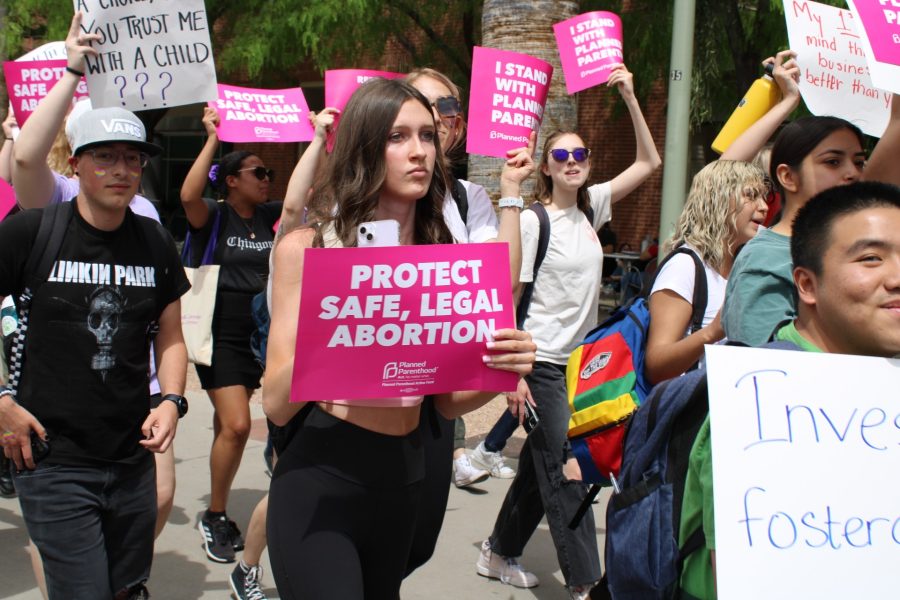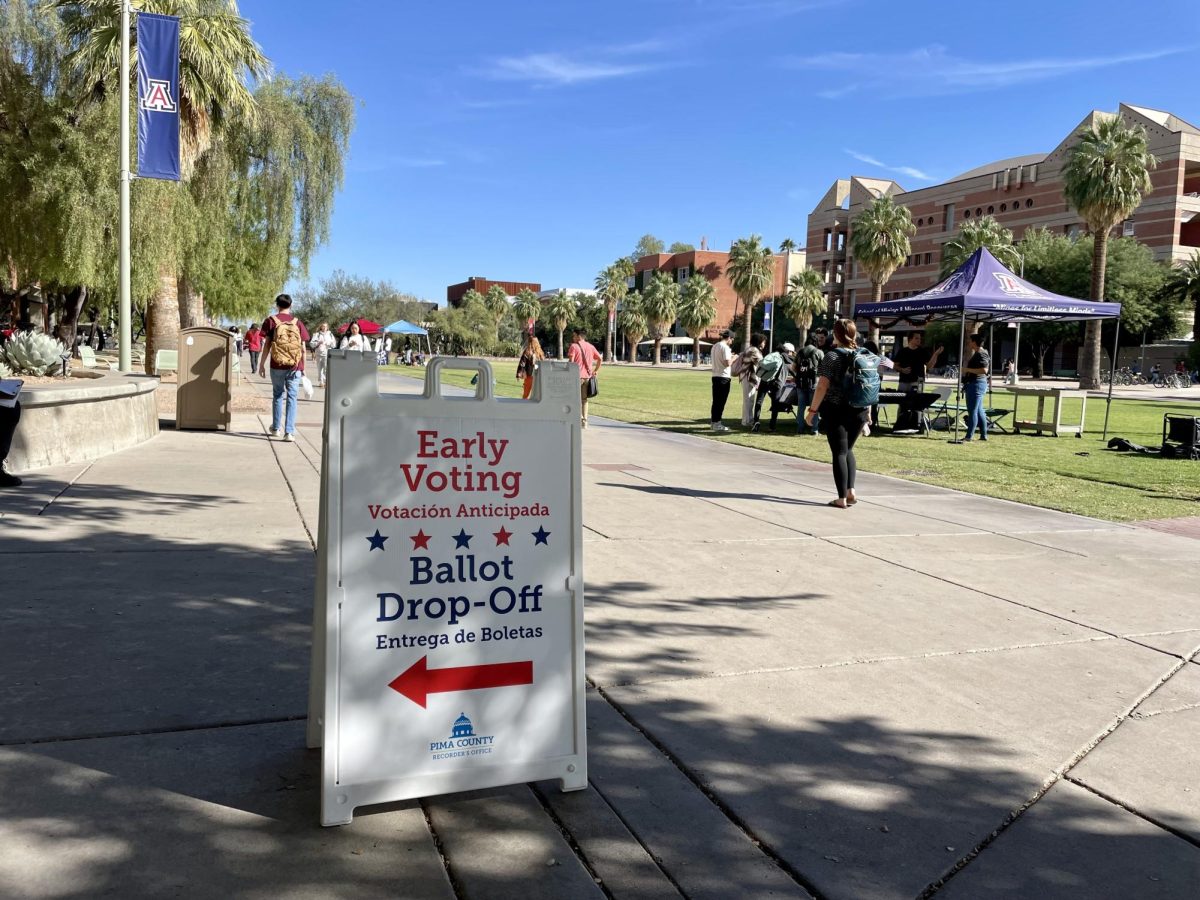A near-total abortion ban will soon go into effect in Arizona, following a state Supreme Court decision Tuesday, April 9 that made a 19th century abortion law enforceable.
The provision, which was initially implemented in 1864, bans all abortions except when the pregnancy is fatal for the mother. The law makes no exceptions for rape or incest, and implements a prison sentence of 2-5 years for abortion providers.
The pre-statehood law is stayed for 14 days as it travels back to the lower courts to hear additional arguments. Its implications have sparked debate, outrage and confusion among Arizonans and elected officials.
Arizona Governor Katie Hobbs, in a press conference Tuesday, said this was a “dark day in Arizona,” and reinforced her commitment to defending the reproductive rights of Arizonans.
“My executive order, removing the ability of county attorneys to prosecute women and doctors for performing abortions remains. I refuse to allow extremist county prosecutors to use this abortion ban to block women and doctors seeking or providing needed healthcare,” Hobbs said. “My administration has expanded access to over the counter contraceptives […]. Last year, I vetoed legislation that would have threatened access to IVF and potentially endangered access to any and all abortions in our state, and any other legislation that threatens to take away our rights will continue to be met with my veto stamp.”
The enforcement of this new ban is made murky by Hobbs’s aforementioned executive order; the order, issued last year, gives Arizona Attorney General Kris Mayes the power to enforce abortion laws. Mayes stood in staunch opposition to this 1864 ban and any abortion ban and has said she will not enforce it. However, her refusal to do so may be challenged by county attorneys.
“Today’s decision to reimpose a law from a time when Arizona wasn’t a state, the Civil War was raging, and women couldn’t even vote will go down in history as a stain on our state. This is far from the end of the debate on reproductive freedom, and I look forward to the people of Arizona having their say in the matter. And let me be completely clear, as long as I am Attorney General, no woman or doctor will be prosecuted under this draconian law in this state,” Mayes said in a statement about the decision.
Prior to Tuesday’s Supreme Court decision, in accordance with a 2022 state law signed by former Governor Doug Ducey, Arizona doctors could perform abortions through 15 weeks.
The Supreme Court’s decision was 4-2; Justices John Lopez, Clint Bolick, James Beene and Kathryn King concurred, with Justices Ann Timmer and Robert Brutinel voicing dissent. Justice Bill Montgomery recused himself and did not participate in the court’s decision. Montgomery had previously made comments about Planned Parenthood, a party in the case, saying it was responsible for “generational genocide.”
Arizona State Representative Stahl Hamilton said that this fight to protect reproductive rights is nowhere near over, and both Hamilton and Hobbs urged Arizonans to take their concerns and fears with them to the ballot box this November.
Leaders in the charge to protect these rights think this recent decision will motivate further support for a ballot measure that would amend the state constitution and create a “fundamental right” to abortion access until the fetus is viable. This measure, if approved, would effectively overturn the 1864 ban.
In an election year already marred by partisan conflict, this decision illustrates the major role abortion rights will play on local and national scales.
Follow the Daily Wildcat on Instagram and Twitter/X
















